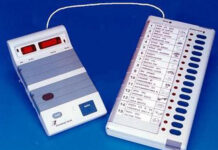SRINAGAR: The cases of HIV/AIDS are increasing with each passing year in Jammu & Kashmir, as 6,158 patients have tested positive in the union territory until June 2023.
An official said that so far, 1,400 HIV-positive patients have died, while 3,478 patients are undergoing Antiretroviral Therapy (ART). He also mentioned that 547 patients have discontinued follow-up.
He further explained that 5,060 cases of HIV have been reported at GMC Jammu, out of which 1,228 have succumbed, 503 have discontinued follow-up, and 2,718 are receiving ART.
Similarly, at SKIMS Srinagar, the number of patients registered for HIV care is 746, with 148 deaths, 32 discontinued follow-up, and 448 undergoing ART, he added.
At ART Kathua, the number of patients registered for HIV care is 352, with 24 reported deaths, 12 discontinuations in follow-up, and 312 receiving ART.
The officials noted that due to social stigma, many people aren’t coming forward for HIV tests, leading to an increasing trend in the number of infected patients over the years.
Acquired Immunodeficiency Syndrome (AIDS) is a chronic, potentially life-threatening condition caused by the human immunodeficiency virus (HIV). By compromising your immune system, HIV interferes with your body’s ability to fight infections and diseases.
HIV is a sexually transmitted infection (STI). It can also spread through contact with infected blood or from mother to child during pregnancy, childbirth, or breastfeeding, as well as from multi-person usage of needles. Without medication, it may take years before HIV weakens your immune system to the point of developing AIDS.
Officials pointed out that individuals suffering from AIDS are unfortunately often stigmatised in society, leading to ostracism, rejection, and discrimination.
They emphasised that J&K is at a higher risk of HIV/AIDS due to being a tourist destination.
Most of the patients who have tested positive for HIV/AIDS in J&K have contracted the disease from outside the UT.
“Drug addicts are at a higher risk of contracting HIV/AIDS, and if they are married or sexually active, they can transmit it to their partners as well,” they stated. (KNO)















